Farming
Market volatility hitting family farms
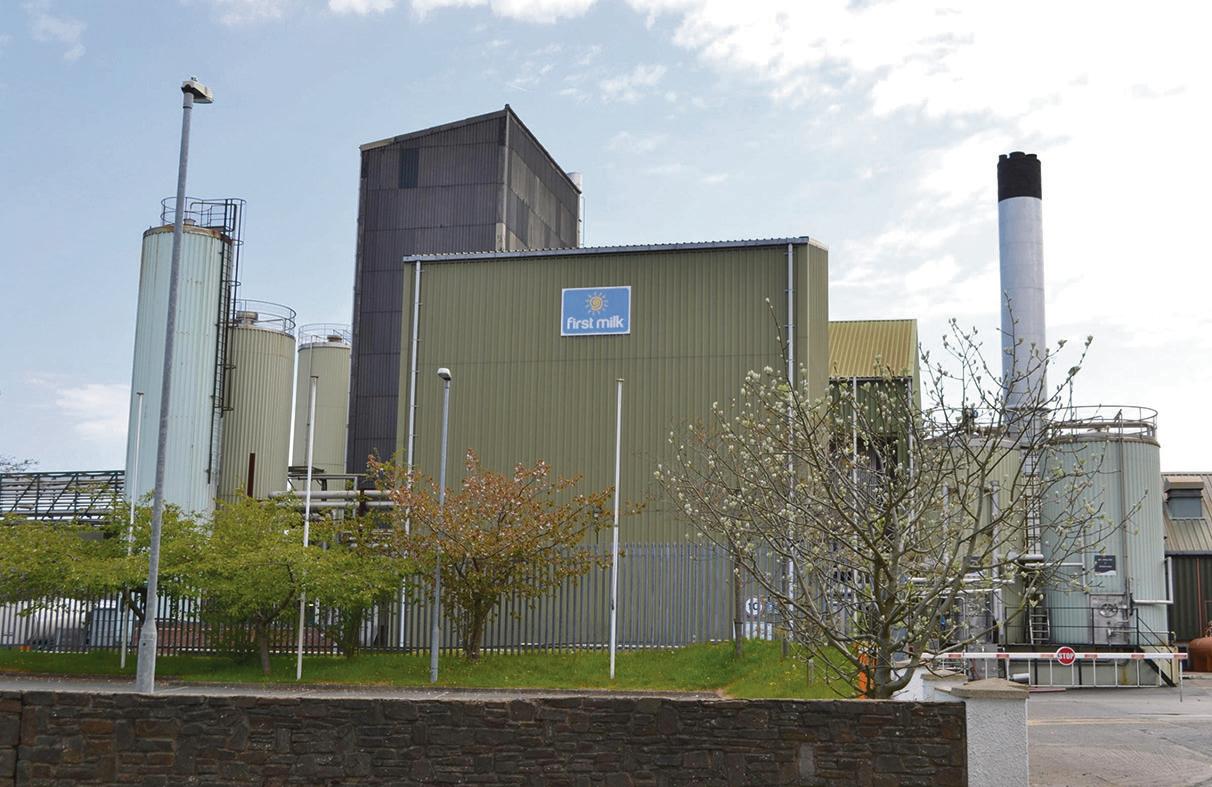
REBECCA EVANS AM – Deputy Minister for Farms and Food, visited the Haverfordwest Creamery to better understand the challenges facing the dairy sector and the plans that farmer-owned First Milk have in place for the future.
Haverfordwest Creamery processes the milk from nearly 300 local dairy farmers, who are all co-owners of the factory and located within a radius of 50 miles.
After completing a factory tour, which included speaking with local employees and a local farmer representative, the Deputy Minister said:
“In the last 12 months we have witnessed volatility and low prices in dairy markets around the world, which has had a direct impact on family farms across Wales. We are working closely with the industry, through our Dairy Task Force, to increase the demand and add value for Welsh milk and milk products.
“I believe that well-invested farmer-owned facilities, such as this creamery in Haverfordwest, are vital to the long-term vision of an efficient and sustainable dairy sector in Wales. One which delivers benefits for the wider rural economy.”
First Milk’s site director at the creamery, Paul Rowe commented: “Haverfordwest Creamery creates approximately £70 million of economic activity per year in West Wales. It processes over 260 million litres of local milk and turns it into 28,000 tonnes of award-winning cheeses, with over 100 local people employed in our cheese making and distribution operations.
“Haverfordwest Creamery is one of the most efficient in the UK and a large proportion of the investments we have made, over the last few years, have only been possible with the support of the Welsh government.
“Dairy markets are very tough right now and dealing with this is our immediate priority. However over the longer-term we firmly believe that the Haverfordwest Creamery is well placed to take advantage of the growing global demand for dairy products. We will continue to work closely with the Welsh government in developing these opportunities for the benefit of our local farming members and owners.”
Addressing the annual DairyCo conference at the University of Aberystwyth the following day (Friday, March 6), Rebecca Evans, announced the completion of the Welsh Dairy Review.
In October, the Deputy Minister announced she was commissioning an independent review of the Welsh dairy sector. She asked Andy Richardson, a member of the Dairy Task Force for Wales, to lead the review, which was commissioned in response to difficulties faced by dairy farmers last autumn, as well as an opportunity to review the voluntary code which had been in operation for two years.
She recently received the final report from Mr Richardson, who categorised his recommendations under five key headings: Leadership, Market Focus, Efficiency, Knowledge and Skills and the Environment.
The Deputy Minister said: “One of the things that has particularly concerned me about the recent cut in the price of milk is the impact on confidence and the possible knock-on effect this could have on investment within the sector.
“Andy Richardson’s review suggests that the mood, both amongst farmers and processors, may be more positive than perhaps is being portrayed and that is good news – without continued investment the future will look very bleak.
“As the price paid for milk continues to fall, many farmers and processors in Wales continue to operate under extremely challenging conditions on a daily basis, as the industry faces a very difficult period, one fundamentally driven by an over-supply.
“I am however confident there is a secure and profitable future for dairy in Wales. As I have said many times before, we have the land, the animals, the labour and the infrastructure. Evident from Andy’s review is that we also have the commitment, the passion and the willingness to change and to adapt that will see us through our current difficulties.
“It is so important to me that we continue to support the sector by taking on board the views of those working within it, and help to grasp the opportunities that exist.
“Following discussions with farmers and processors across Wales, Andy has been able to provide a vision of the future for the whole of the dairy sector which sets the direction for a more sustainable industry in the future.
“I would like to thank Andy for his work, undertaken in such a short period of time. I expect to publish the report, alongside the Welsh Government’s formal response, in the form of an action plan once I have given it due consideration.”
The Dairy Review was intended to draw on the work already undertaken by the Dairy Task Force but looked wider, taking views from all parts of the supply chain. It also considered what support the RDP 2014 – 2020 may provide to dairy farmers and the milk processing sector in Wales.
Meanwhile at Carmarthenshire’s recent NFU-Cymru conference, NFU President Meurig Raymond assured union members that the NFU was doing it all it can to assist its milk producing members get through the current price volatility when he spoke at the recent Carmarthenshire NFU Cymru conference.
Mr Raymond explained helping farmers within the milk industry was the Union’s top priority at present. He said he has met with the leading banks to ask them to help farmers at this difficult time. He has met with Government to discuss tax concessions. They’ve given evidence to the Efra Committee asking for more powers to the Groceries Code Adjudicator. The NFU has spoken to milk buyers, particularly First Milk. Mr Raymond also told those present how he has personally had some very difficult meetings with the major retailers and has had some assurances that they will stock more British dairy products in the future.
Mr Raymond said, “We are grateful to shoppers for the positive messages we’ve received as dairy producers and pleased that so many consumers have come out and backed British dairy farmers at this time. We’ve been inundated on social media in particular by shoppers wanting to know where they should buy their dairy products to help us most. In response we have said that shoppers have to check the labels to make sure they are definitely buying British produce – not something that looks British. The Red Tractor mark is a good quick indicator. I would like to take this opportunity to thank the British public for all their support at this time.”
Farming
Housing restriction at Hayscastle farm site removed
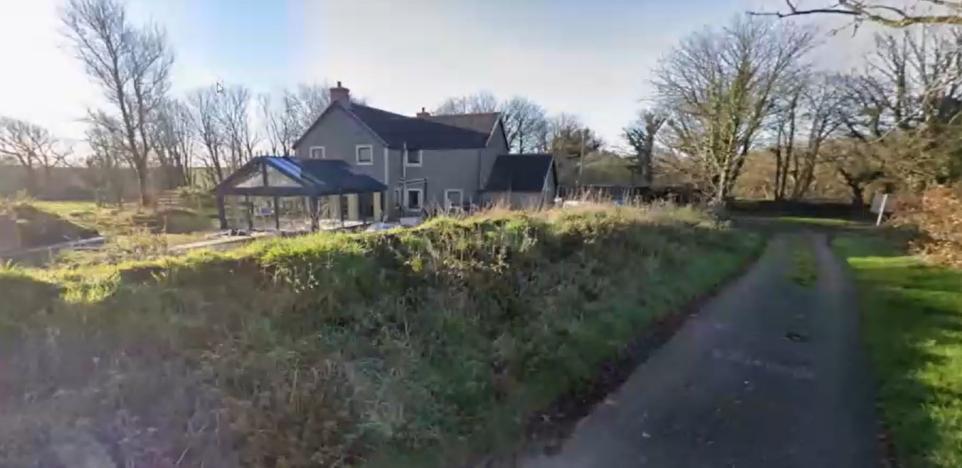
A CALL to remove an agriculture condition imposed back in 1989 on a Pembrokeshire farm site which is said to be “economically unviable” as a farm has been given the go-ahead.
In an application recommended for approval at the February meeting of Pembrokeshire County Council’s planning committee, Rosalyn Jayne Evans sought permission for the removal of an agricultural worker-only condition for residence at Upper Hayscastle Farm, Hayscastle, near Haverfordwest.
The original condition was imposed as part of a 1989-approved planning application.
A report for members said the land, some 26.3 hectares,” is, following independent valuation, not considered to be an ‘economically viable unit in its own right’.”
“The report author contends this was also likely to have been the case at the time when [the 1988 scheme] was originally granted as no housing for livestock, crop or slurry storage was provided as part of the original consent or since the approval.
“The report also states that whilst the land is productive for uses such as grazing and crops, the lack of building(s) would restrict the economic viability of Dolfach as a separate agricultural holding.
“If investment were to now be made at the holding in relation to dairy or beef farming, the report contends that this would be economically unviable, due to the holding at Dolfach being unable to support a sufficient number of animals to produce the financial return required to sustain the business. The report also highlights that building(s) for livestock would be essential in relation to the prevalence of Bovine TB in the locality.”
It added: “It is considered that the information provided by JJ Morris is sufficient to indicate that the scale of the land holding and the lack of infrastructure would make a farming enterprise at the site an economically unviable proposition.”
It recommended “the existing Section 52 agreement be discharged to remove the requirement for the dwelling to be tied to the land in agriculture at Upper Hayscastle Farm and for the dwelling to be occupied by a person solely or mainly employed before retirement in agriculture”.
The recommendation of approval was moved by Cllr Brian Hall and unanimously backed by committee members.
Farming
Performance recording transforms hill flock at Llysfasi college farm

A WELSH college farm is successfully lambing triplet-bearing ewes outdoors on exposed hill ground after introducing genetic performance recording to strengthen maternal traits and flock resilience.
At Coleg Cambria Llysfasi, near Ruthin, a flock of 120 pure Welsh Mountain ewes grazes land rising between 1,000 and 1,300 feet above sea level, where winter conditions can be harsh and only the hardiest sheep thrive.
Since joining the Farming Connect Welsh Sheep Genetics Programme in 2023, the farm has used Estimated Breeding Values (EBVs) to target improvements in maternal ability, growth rates and overall performance. Although genetic gains are often gradual, staff say results are already clear just three years into the scheme.
Historically, ewes carrying triplets were lambed indoors, adding labour and cost. Now, improved maternal strength means they can lamb outside with minimal intervention.

“The ewes are holding their body condition better, we haven’t had any problems lambing them outdoors and they keep their lambs very well,” said shepherd Alun Jones. “We’re seeing fewer losses and far less hands-on work. In the 2025 season we only assisted two ewes out of 120.”
The wider system runs 600 ewes, including Welsh Mountains crossed with Abertex to produce mule ewe lambs, and mules crossed with Beltex or Texel rams for finishing lamb production. Plans to phase out the Welsh Mountain breed were reversed after recognising its value for hardiness and mothering ability in upland conditions.
Performance recording began in autumn 2023 with tissue samples, body condition scoring and regular weighing to create a reliable data baseline.
“Before, we were judging by eye,” said Mr Jones. “Now we’ve got hard evidence to guide decisions.”
By identifying and removing the bottom 20 per cent of performers, the flock’s overall index has risen from £13 to £16.24 — a significant lift in commercial potential.
Lambs are currently creep-fed and sold from November to January at 38–42kg liveweight, with a longer-term aim to finish earlier and reduce concentrate use.
Farm manager Dewi Jones said the data has also changed how they buy rams.
“When you’re at a sale and you’ve got the indexes in front of you, you can draw a red line through the animals that don’t stack up. Type still matters, but figures matter just as much. Data gives you confidence in your choices.”
Some home-bred ram lambs are now matching the performance of sale-topping sires, creating opportunities to retain or market their own breeding stock.
Mr Jones believes the sheep sector could benefit from taking a more data-driven approach, similar to dairying.
“If we don’t measure, we can’t improve. Recording takes time, but the rewards are there. It’s about working smarter and building a more resilient flock for the future.”
Shepherd Alun Jones with Welsh Mountain ewes at Llysfasi.
Performance recording and weighing form a key part of the improvement programme.
Business
Langdon Mill Farm Pembrokeshire expansion signed off
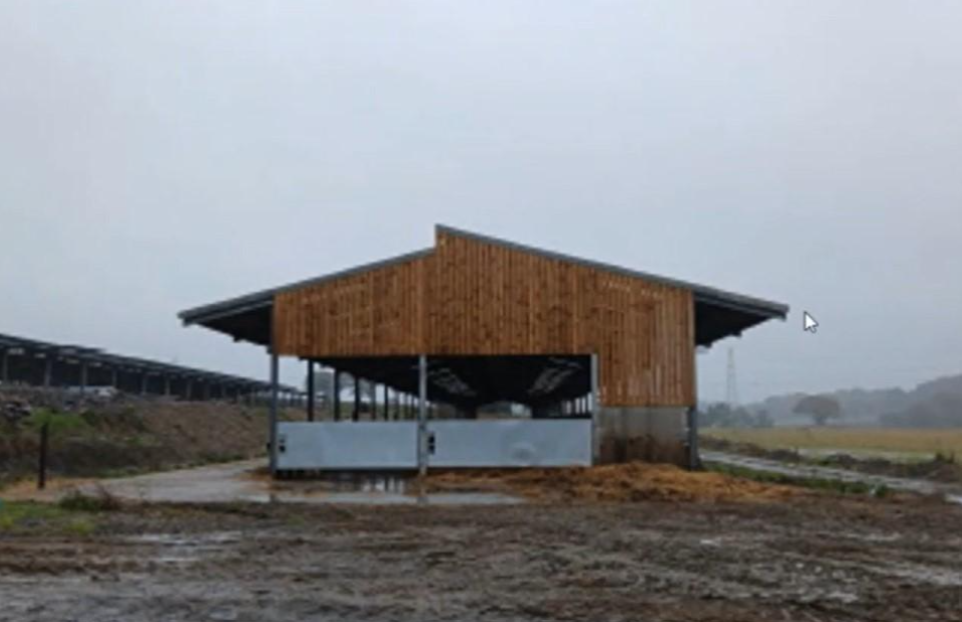
THE FINAL sign-off for plans for a heifer accommodation building and associated works at one of Pembrokeshire’s largest dairy farms, with a milking herd of 2,000 cows, have been given the go-ahead.
In an application backed by councillors at the December meeting of Pembrokeshire County Council’s planning committee, Hugh James of Langdon Mill Farms Ltd sought permission for a 160-metre-long heifer accommodation building, a slurry separation/dewatering building and associated yard areas at 1,215-hectare Langdon Mill Farm, near Jeffreyston, Kilgetty.
A supporting statement through agent Reading Agricultural Consultants said: “The holding currently has a milking herd of approximately 2,000 cows, which are housed indoors for the majority of the year, with dry cows and heifers grazed outdoors when weather and soil conditions permit.
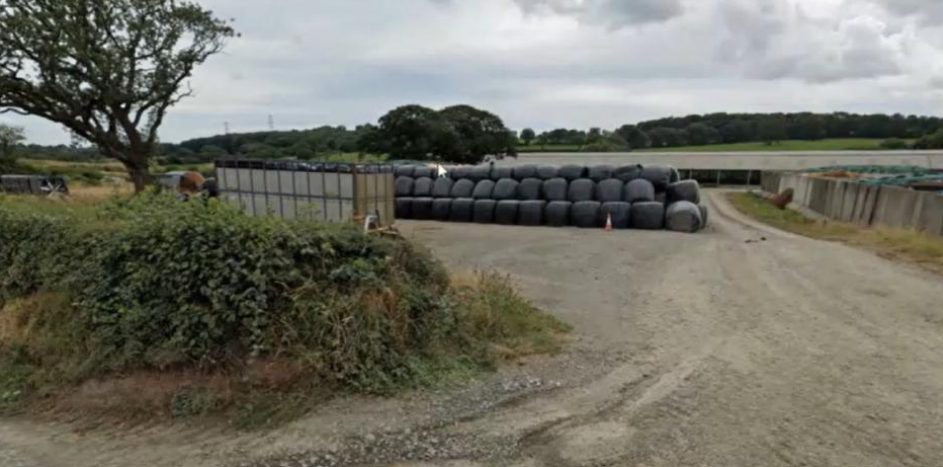
“There has been significant investment in buildings and infrastructure at the farm over the last decade in respect of cattle accommodation, slurry storage, milking facilities, Anaerobic Digestion (AD) plant, feed storage. Recently a calf and weaned calf accommodation buildings were approved by Pembrokeshire County Council with construction almost complete.
“The unit is efficient, achieving yields of more than 10,000 litres/cow/year, with cows being milked three times/day in the 60-point rotary parlour. Langdon Mill Farm currently directly employs 21 full-time, and three part-time staff. Of these, four live on site in the two dwellings opposite the farm, with the remaining staff living in the locality.”
It added: “Although the unit has previously purchased heifers to aid expansion, the farm now breeds most of its own replacements to improve genetics and to minimise the ongoing threat of bovine tuberculosis (bTB).”
It said the proposed building would be used by heifers between the ages of 7-22 months, the siting “directly influenced by the adjacent calf and weaned calf buildings, with livestock being moved from one building to the next as they get older”.
Members unanimously supported the recommendation of approval, giving delegated powers to the interim head of planning to approve the application following the final approval of a habitats regulations assessment.
An officer report published yesterday, February 5, said Natural Resources Wales confirmed it had received the assessment, and, “in consideration of the mitigation measures detailed and on the understanding there is no increase in stock, they agree with the LPA’s conclusion that an adverse effect upon the integrity of the SAC [Special Areas of Conservation] sites can be ruled out”.
Formal delegated approval has now been granted by officers.
-

 Health2 days ago
Health2 days agoHealth Board to decide future of nine key services at two-day meeting
-

 Business4 days ago
Business4 days agoComputer Solutions Wales under fire from customers
-

 Business7 days ago
Business7 days agoSix-figure negligence victory leaves retired builder trapped in divorce limbo
-

 Business6 days ago
Business6 days agoMinimum alcohol price to rise by 30 per cent as retailers warn of border impact
-
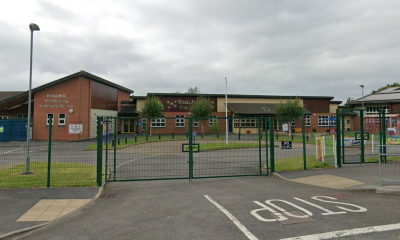
 Education7 days ago
Education7 days agoSecond west Wales school placed in lockdown within days
-

 Community3 days ago
Community3 days agoFacebook ‘news’ site targeting Herald editor collapses after community backlash
-

 Charity4 days ago
Charity4 days agoWelsh patient voices help shape new UK-wide online kidney forum
-

 Crime6 days ago
Crime6 days agoPembroke Dock man admits threatening to hack woman’s head off with sword





























deangelo davidson
October 9, 2025 at 12:25 am
Perfectly balanced between detail and simplicity. Go live with equidia tv live — expert analysis and on‑track coverage. programmes and tips throughout the day. results archive, post‑race highlights. clean interface with instant access.